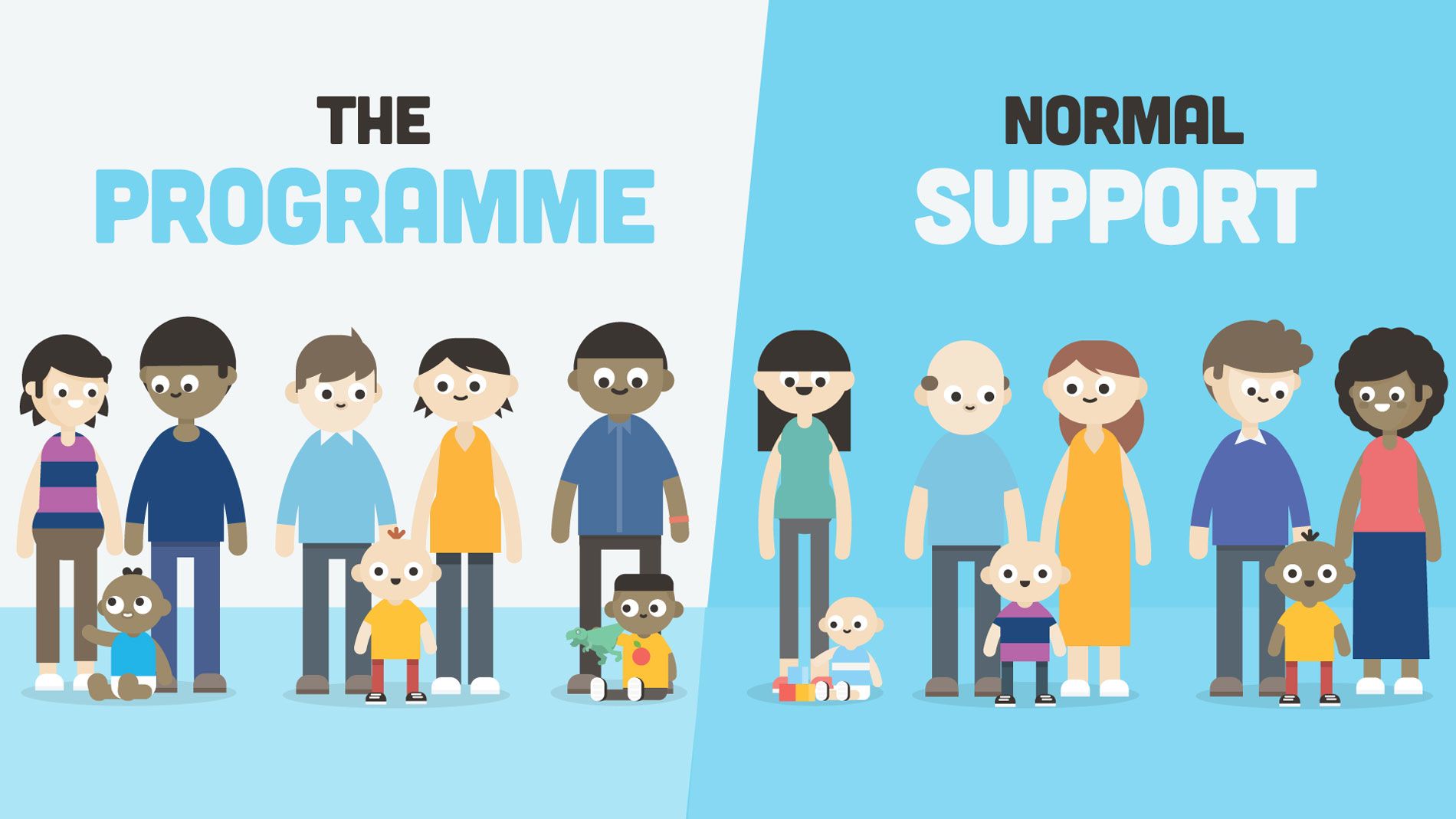

Healthy Start,
Happy Start
New evidence that a brief relationship-based intervention for families can protect against children developing behaviour problems years later.
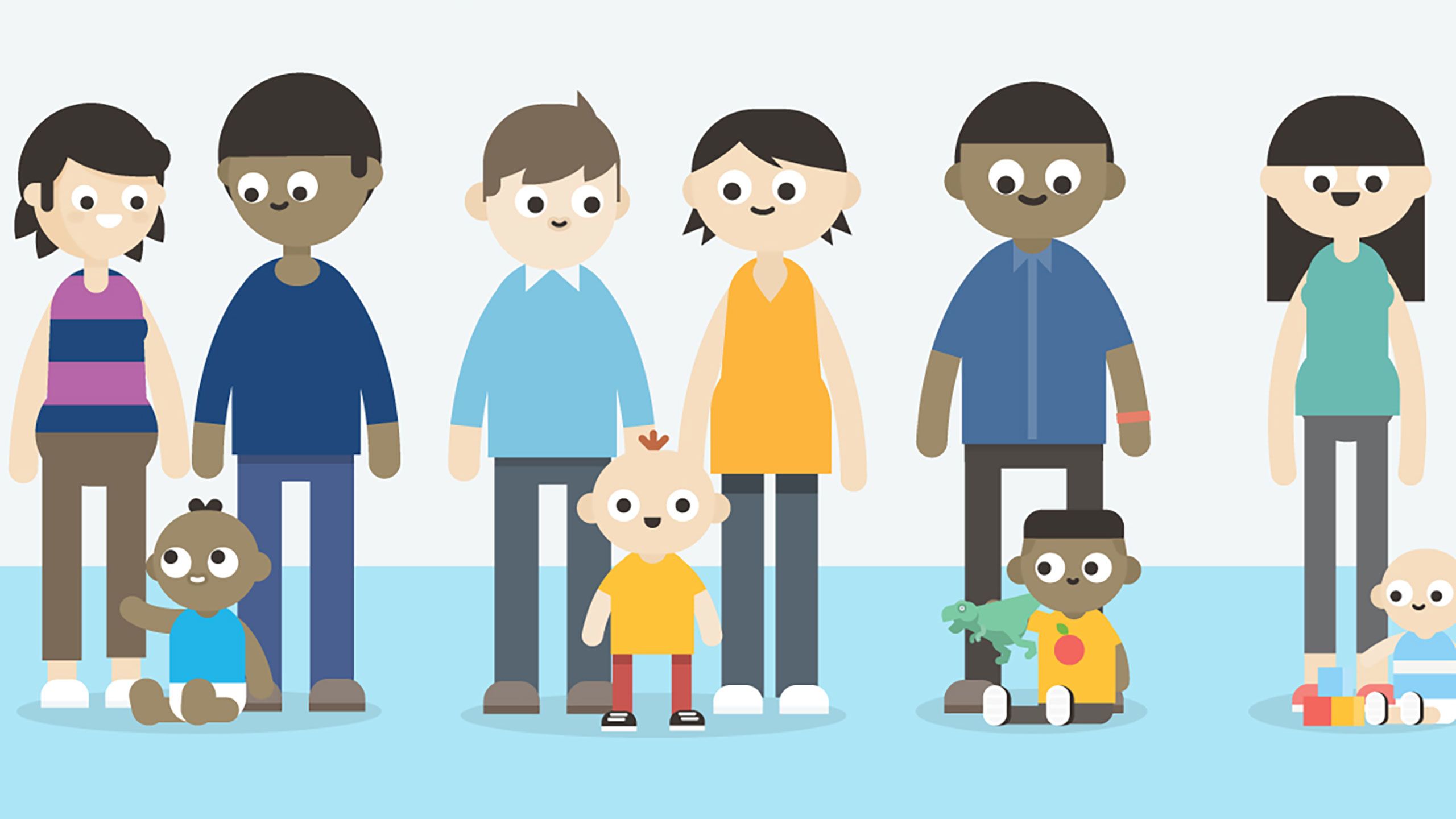
At-a-glance summary
- During early childhood, children begin learning how to manage and regulate their emotions and behaviour. Some find this harder than others and without the right support, this can affect their mental health, education and relationships through childhood and well into adulthood.
- Because parents play a vital role in helping children to develop these skills, researchers in the Play in Education, Development and Learning (PEDAL) Centre, at the Faculty of Education, University of Cambridge, ran a study called Healthy Start, Happy Start; testing a programme that supports families with toddlers showing early signs of struggling with emotions and behaviour.
- Unlike most such interventions, this was brief and low-intensity. It involved just six sessions in which a health visitor used video to help parents to notice and respond to their child’s communication and behaviour. The approach was tested in a randomised trial with 300 families.
- Our earlier findings showed the programme was effective up to two years after delivery. Now, our latest research shows that the benefits were clear even six years later – when the children were around eight years old – and that children in the programme continued to show lower levels of behavioural problems.
- For the first time, we can show that a short, home-based parenting programme has a sustained effect, helping to prevent early difficulties from becoming more entrenched in later childhood.
- Inevitably, the impact does reduce a bit over time, so we also recommend follow-up, “booster” sessions to sustain progress for the most vulnerable children.
- The bottom line: Early, relationship-based support for families can prevent future, behavioural difficulties. This research offers a simple, scalable model for doing just that.
Context
Early intervention is key to addressing behaviour problems
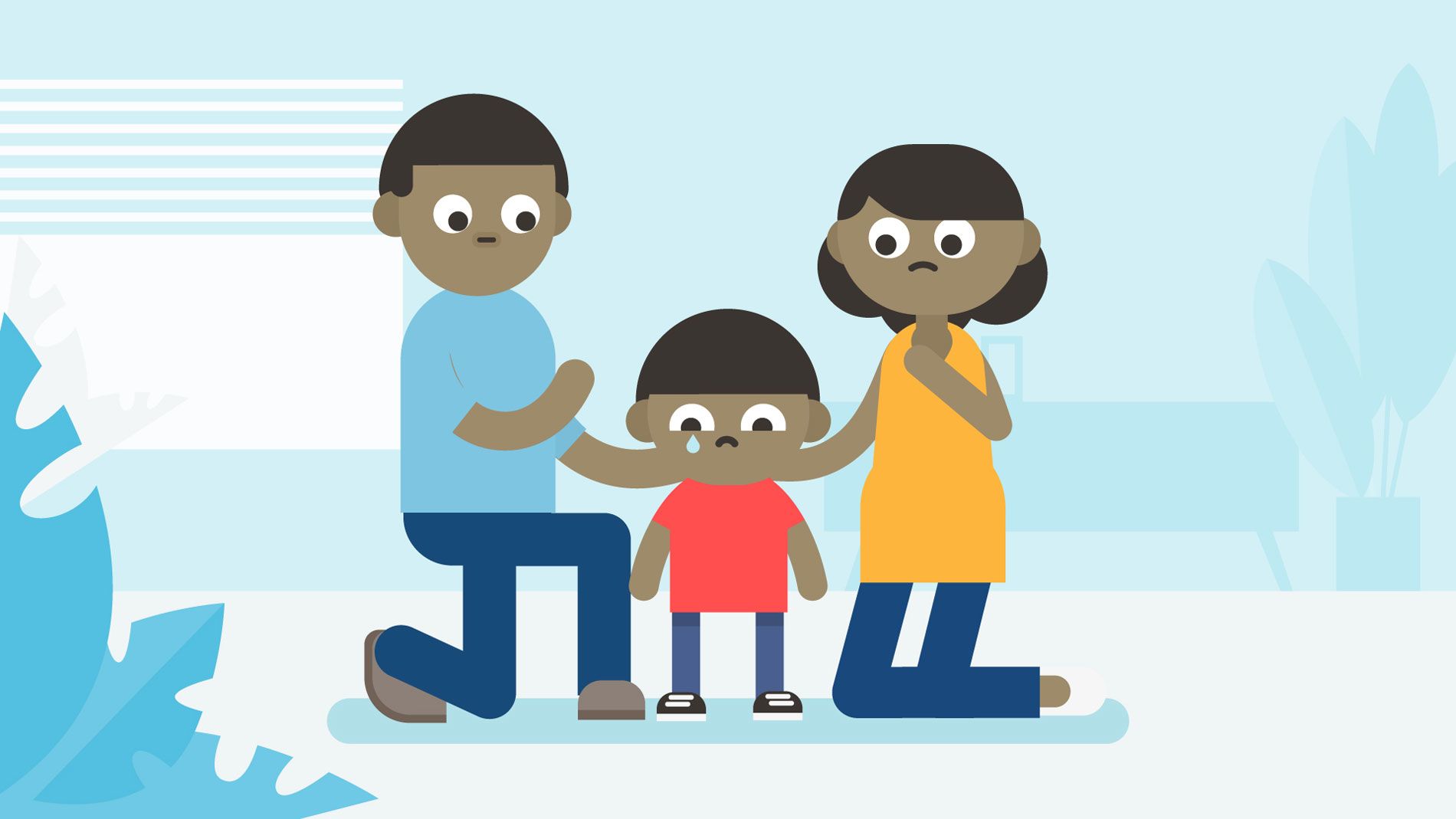
During early childhood, all children begin to learn how to manage and regulate their emotions and behaviour. These skills are vital because they help children to play, learn and thrive, and they protect against mental health problems. Managing and regulating emotions and behaviour is more difficult for some children than others, however, and if this is not supported early, it can lead to problems later on.
In the UK, as many as one in five children has a probable mental health disorder, many of which begin in early childhood. Without the right support, early behaviour problems can affect a child’s development, learning and relationships. They are linked to a higher risk, later on, of anti-social behaviour, substance misuse, poor educational attainment, and long-term physical and mental health issues. The effects can last through childhood and into adulthood; impacting not just the child, but families, friends, schools and wider society.
Not all children who experience early difficulties will go on to have significant problems in later childhood, but there is a higher risk. The key to mitigating this risk and giving all children a strong start is early intervention. If appropriate support is provided in the early years, we have a better chance of preventing many of these problems from taking root. However, very few studies have been able to test potential interventions over time to see if they have a lasting effect.
That is something our project, Healthy Start, Happy Start, set out to do. We tested a brief, video-based parenting programme called VIPP-SD over several years to see whether it reduced behavioural difficulties among children identified as being at risk. Our early findings were promising, but the big question was: would the benefits last? The following sections summarise what we did to answer that question – and what we found out.
What we did
Testing early relationship-based parent support
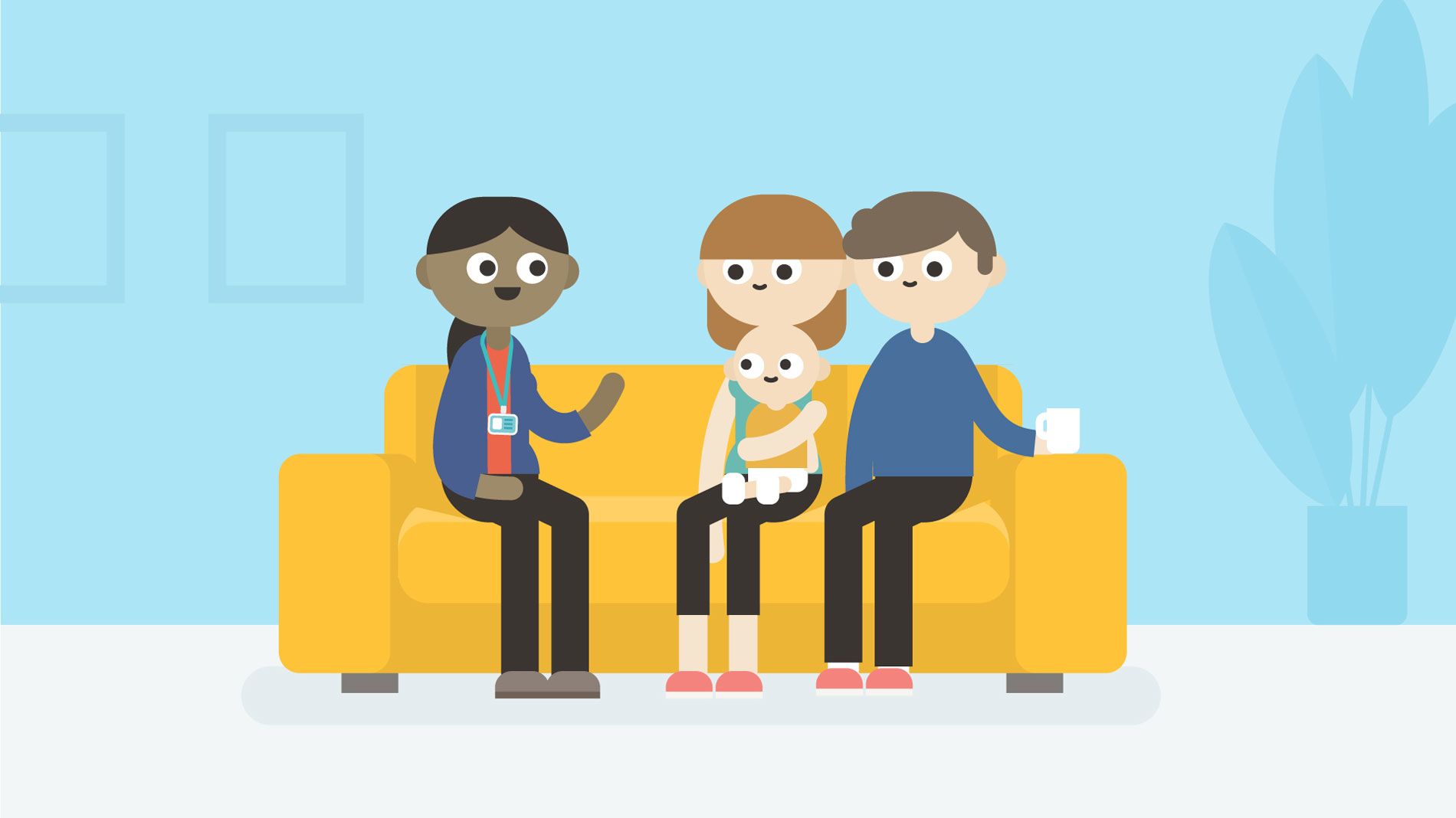
The video-based approach tested in our study is called VIPP-SD; short for Video Feedback Intervention to Promote Positive Parenting and Sensitive Discipline.
The idea is simple: Over six sessions, a trained health visitor films parents interacting with their child in everyday situations – for example, when they are playing together, or at mealtimes. In subsequent visits, the parent and health visitor also review video clips from previous sessions, focusing on positive moments of interaction and discussing how to build on these, as well as any more challenging issues that arose. The idea is that this helps parents to notice their child’s signals and cues, and helps them to respond in a way that reinforces positive behaviour in a warm and supportive manner.
Our trial began 10 years ago, in July 2015. We identified 300 families with toddlers (aged one and two years old) who were showing early signs of possible behaviour problems. These families were randomly assigned to one of two groups: one received VIPP-SD alongside their usual care support; the other received usual care only. The trial involved families from six NHS Trusts across London, Peterborough, Oxfordshire and Hertfordshire.
Our research team then followed up with the families at three points: five months after joining the study, two years later, when the children were aged about four, and six years later, when the children were about eight years old.
At both the five-month and two-year marks, children in the VIPP-SD group showed fewer behavioural problems than those who had not received the intervention, suggesting that the programme was having a positive and sustained effect. Our latest study looked at whether those benefits were still visible much further down the line: at the six-year mark, when the children were about eight years old.
To assess this, we used a structured interview called the Parental Account of Childhood Symptoms (PACS). Parents or caregivers were asked to describe their child’s behaviour in real situations over the preceding week – for example, at home, in public or with friends – and to say whether these examples reflected their child’s usual behaviour over the previous four months. The results were rated using two scales: one for problems related to attention and hyperactivity and one for more challenging and disruptive behaviours.
We also gathered data from other sources, including a detailed parent questionnaire, teacher reports, and standard measures of children’s emotional traits and wellbeing. We also examined families’ use of health and social care services, to explore whether the intervention had any longer-term impact on the need for additional support.
What we found
Early intervention with lasting impact
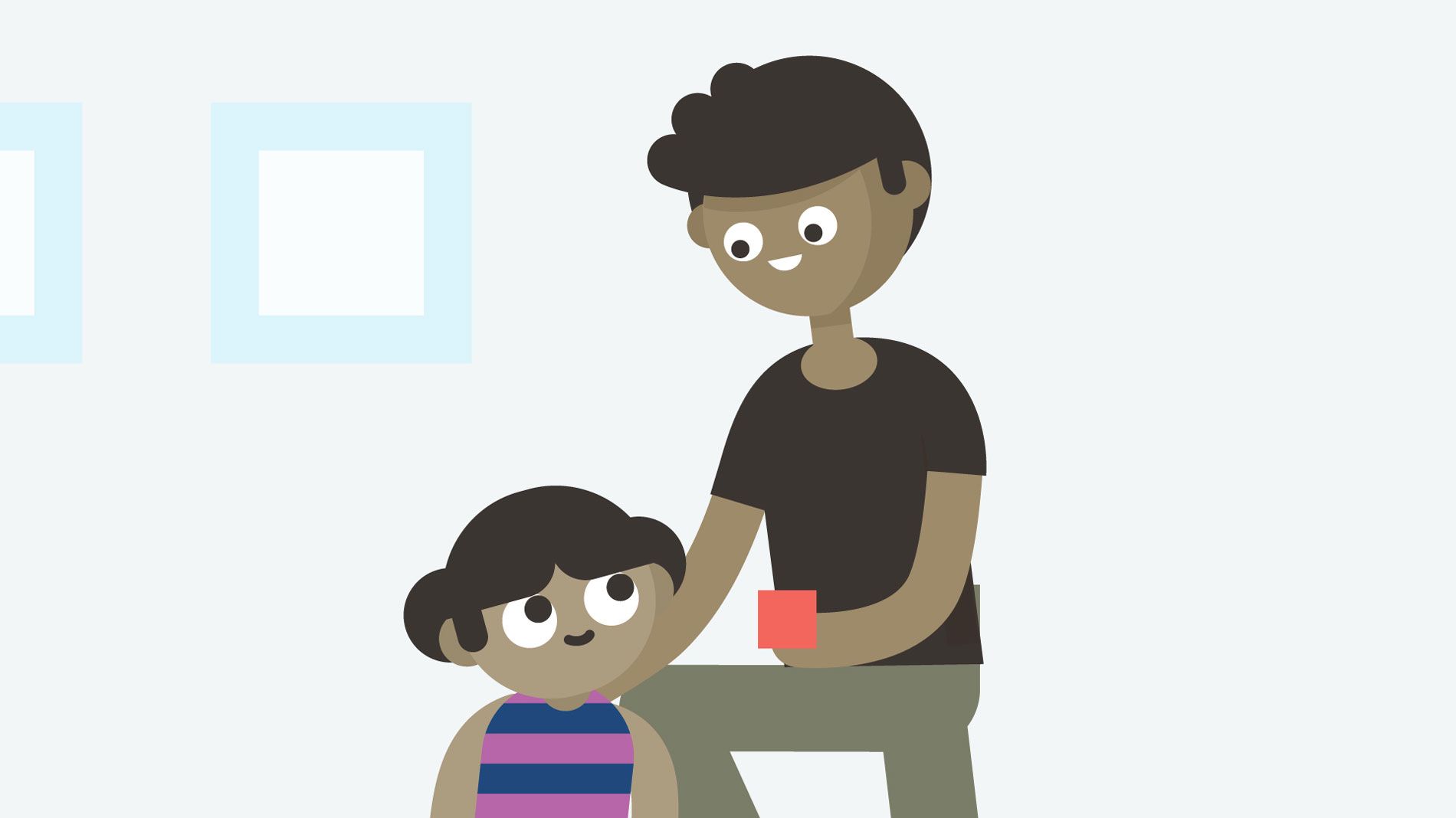
We found that taking part in the VIPP-SD programme was still making a positive difference six years later.
On average, children whose families received the intervention scored 1.23 points better on the PACS behaviour scale than those whose families did not. That might not sound like much, but it reflects a clear movement from disruptive behaviour towards more manageable behaviour. For example, a one-point change on the PACS scale could mean the difference between:
• Serious tantrums involving thrown or kicked objects, and milder ones with arm-waving or stamping.
• Rude, disrespectful behaviour, and being cheeky but not hostile.
• A child having to be forced to go to bed, and one who grumbles or stalls but eventually goes
We calculated that there was an 86% likelihood that the VIPP-SD intervention was better than usual care support alone. And because our approach was deliberately cautious, it may be that the real effect was larger. The benefits were also more pronounced for general disruptive and challenging problems than symptoms of hyperactivity and inattention – a pattern consistent with earlier results from the trial.
This is the first time that a brief, home-based parenting intervention has been shown to have a sustained effect in this way. One likely reason is that VIPP-SD focuses not just on challenging behaviours, but on positive, sensitive, attuned parenting and the parent-child relationship.
As a result, this study provides good evidence that a short, video-based programme can have a meaningful and lasting impact not just for children, but also potentially for their families. If delivered more widely, VIPP-SD could have significant benefits for child behaviour and long-term public health.
One note of caution was that the cost-effectiveness of this initiative was difficult to gauge. Families who received VIPP-SD used fewer health and care services later on, but the savings don’t fully offset the costs of delivering the intervention by themselves. However, it is worth noting that the full costs of behaviour problems are often felt long after the age of eight – when the children reach adolescence and adulthood. This occurs, in particular, through increased costs for the health, care, education and criminal justice systems.
In short, while it is difficult at this stage to put a figure on the cost benefits, our findings clearly show that this intervention can make a lasting difference – for children, and society as a whole.
What next?
Start early and consider “booster shots”

Behavioural problems in early childhood do not guarantee future difficulties, but they do raise the risk. As this study shows, a brief intervention delivered when children are just one or two years old can have sustained benefits well into middle childhood and it is likely the effects extend further still.
The impact of the intervention had faded slightly by the six-year mark. For that reason, we recommend exploring the value of follow-up interventions – or “booster shots” – particularly for the most vulnerable children and families, to help maintain progress over time. The key point is that early support has a cascading effect. This has often been discussed in theory, and is the ambition of policy initiatives, but it has rarely been demonstrated in practice until now.
Policy-makers often express concern about children’s behaviour in schools and, understandably, the response tends to involve family support that starts later, or classroom-based solutions. This research shows the value of starting much earlier. By equipping health visiting services with the time, skills and capacity to deliver brief, evidence-based interventions like VIPP-SD, we can reduce behaviour problems before they escalate – and in doing so, reduce the need for later interventions.
Read the full paper in the Journal Of Child Psychology And Psychiatry.
This study/project is funded by the NIHR Health Technology Assessment NIHR132896
The views expressed are those of the authors and not necessarily those of the NIHR or the Department of Health and Social Care. We are grateful to the families and teachers who participated in this follow up study for their generosity in contributing over such a long period
All images above produced by Morph on behalf of the PEDAL Centre, Faculty of Education, University of Cambridge.
